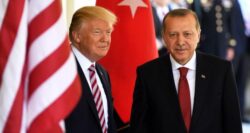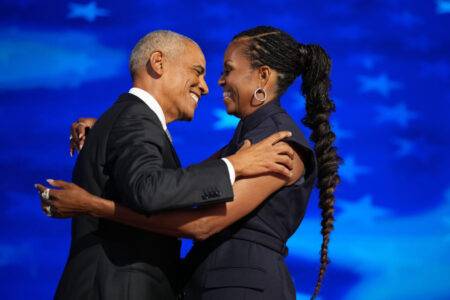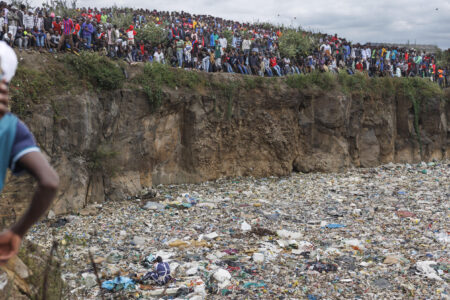Turkey hiked tariffs on imports (Wednesday, Aug 15) of several key US products in retaliation for American sanctions against Ankara, as the bitter dispute between the two allies that has battered the Turkish lira showed no sign of ending.
The lira, however, which lost just under a quarter of its value in trading on Friday and Monday, continued to claw back some ground on financial markets, rallying around five per cent against the dollar.
This economic war was started because Turkey would not succumb to US pressure and free an American being held in a Turkish prison on charges of espionage.
Last week a court rejected an appeal for the release of American pastor Andrew Brunson, and his detention sparked the crisis and with Trump’s failed attempts to get him released. The United States reacted by warning Turkey it would face “large sanctions” if it did not release Mr Brunson immediately.
Andrew Brunson is an evangelical from North Carolina, he has been held in Turkey for nearly two years over links to the outlawed Kurdistan Workers Party and the Gulenist movement, which Turkey blames for a failed coup in 2016. Last month he was moved into house arrest for health reasons
White House press secretary Sarah Sanders said the US had seen “no evidence that Pastor Brunson has done anything wrong” but recognised the arrest was a legal matter for the Turkish judiciary.
As a consequence the lira’s fall had raised fears Turkey was on the verge of a fully-fledged economic crisis, especially in its banking system, that could spill over into Europe and other markets.
Turkish Vice President Fuat Oktay said that the tariff hikes were ordered “within the framework of reciprocity in retaliation for the conscious attacks on our economy by the US administration”.
President Donald Trump had previously announced that the United States was doubling steel and aluminium tariffs on Turkey.
The decree said the move brought tariffs to 50 per cent on imports of US rice, 140 per cent on hard alcoholic drinks like spirits, 60 per cent on leaf tobacco and 60 per cent on cosmetics.
Erdogan’s spokesman Ibrahim Kalin added: “Turkey is not in favour of an economic war with anyone but when attacked … will take all necessary steps.
In a speech president Erdogan urged his audience to give up their iPhones and swap them for a Samsung.
Moves by the central bank to ensure Turkish banks have liquidity and a planned conference call by Turkish Finance Minister Berat Albayrak, who is Erdogan’s son-in-law, have gone some way to reassuring investors.
The lira was trading on Wednesday at 6.1 to the dollar, a gain in value on the day of 4.5 per cent.
But many analysts say the only way for the authorities to show they are really serious about tackling Turkey’s economic problems – which include inflation approaching 16 per cent – would be a sharp interest rate hike.
Emir Sheikh Tamim bin Hamad Al-Thani of gas-rich Qatar, one of Turkey’s very closest allies, arrived in Ankara on Wednesday for lunchtime talks with Erdogan.
Turkish officials have also been keen to emphasise that Ankara wants to retain strong ties with Europe, which has also expressed deep unease with Trump’s trade policies.
Erdogan was due to speak on the phone with German Chancellor Angela Merkel on Wednesday and French President Emmanuel Macron on Thursday, the presidency said.
[simple-payment id=”7912″]






